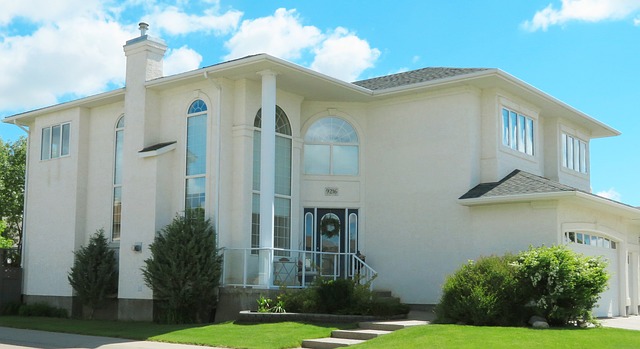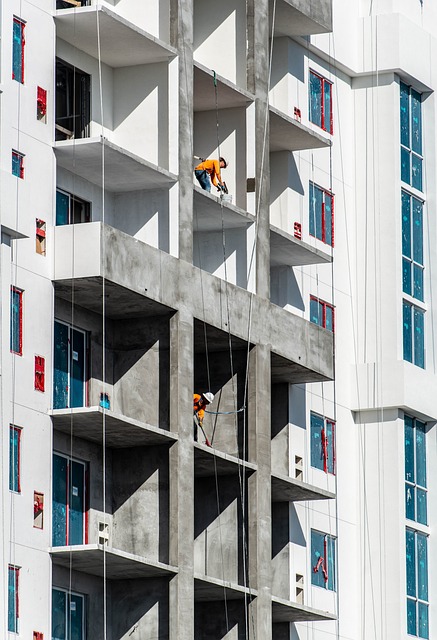The Executive Condominium Price in Singapore is influenced by a multitude of factors including government regulations, market demand, and economic conditions. The Housing & Development Board (HDB) sets eligibility criteria which can affect the affordability and accessibility of ECs for first-time homeowners and upgraders. Over time, as an EC matures or gets privatized, it transitions from a subsidized to a market-priced property, experiencing a significant shift in pricing. Buyers must consider both new and resale ECs, weighing the pros and cons of fresh finishes with complete BCA warranties against potentially more competitive pricing and favorable locations or amenities found in resale units. Financing options, adherence to Total Debt Servicing Ratio (TDSR) and Mortgage Servicing Ratio (MSR), as well as additional maintenance fees and market trends such as the Cost Venture Index, are all critical considerations when assessing Executive Condominium prices in Singapore. Keeping an eye on government updates, economic performance indicators, demographic shifts, and changing family preferences will provide insight into future price movements for ECs.
navigating the nuanced real estate landscape of Singapore, one will encounter the distinctive segment known as Executive Condominiums (ECs). These hybrid properties offer a blend of private and public housing benefits, catering to the diverse needs of middle-income families. In this comprehensive guide, we delve into the multifaceted aspects of EC pricing, from historical trends to the influence of geographic location and the impact of eligibility criteria on price. We also explore the resale market dynamics, financing options available, and experts’ projections for future EC price trends. This article serves as an invaluable resource for anyone interested in understanding the Executive Condominium price structure within Singapore’s property market.
- Understanding Executive Condominiums in Singapore: A Real Estate Overview
- The Evolution of Executive Condominium Pricing in Singapore's Property Market
- Key Factors Influencing the Price of Executive Condominiums Today
- Location Matters: How Geography Impacts Executive Condominium Prices
- Tiered Eligibility Criteria: What It Means for Executive Condominium Ownership and Pricing
- The Resale Market: A Comparative Analysis of New vs. Resale Executive Condominiums
- Financing Your Executive Condominium: Understanding the Loan Landscape and Costs
- Future Trends and Projections for Executive Condominium Prices in Singapore
Understanding Executive Condominiums in Singapore: A Real Estate Overview
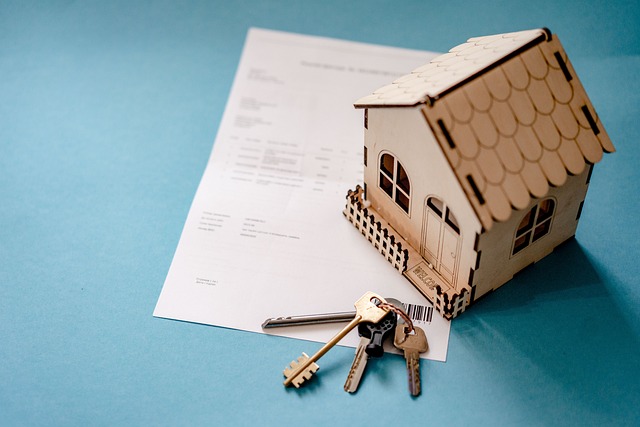
Executive Condominiums (ECs) in Singapore offer a unique blend of public and private housing benefits, designed to cater to the needs of upgrading families. These hybrid housing types are a practical step-up from HDB flats, providing more space and condominium facilities at a price point that is more accessible than pure private condominiums. The pricing of ECs is structured to be within reach for first-time homeowners, particularly through the use of CPF (Central Provident Fund) grants, making them an attractive option for middle-income families aspiring to own a larger and more luxurious property.
The eligibility criteria for purchasing an Executive Condominium in Singapore are distinct; married couples or individuals must meet the income ceiling and have been HDB flat owners for at least five years before applying. This policy ensures that these properties are primarily reserved for those who intend to stay for a minimum period, preventing speculative purchases. Over time, as ECs mature and reach the end of their minimum occupation period, they can be sold on the open market as private condominiums, potentially appreciating in value. Prospective buyers interested in Executive Condominium price trends should consider factors such as location, unit type, facilities, and the development’s age. These elements play a significant role in determining the market value of ECs, offering investors and owners a chance to capitalize on the real estate potential within Singapore’s dynamic property landscape.
The Evolution of Executive Condominium Pricing in Singapore's Property Market

Over the years, the pricing of Executive Condominiums (ECs) in Singapore has undergone significant shifts, influenced by both macroeconomic factors and policy adjustments. Initially, ECs were introduced as a hybrid housing option for Singaporeans who aspired to own a larger home but could not afford private condominiums. The pricing of these units was set to reflect their status as a stepping stone between public housing and private property. As the market evolved, the Executive Condominium price points adjusted in response to demand-supply dynamics, inflation rates, and changes in government subsidies and loan schemes. For instance, during periods of economic growth and property market upturns, EC prices have trended upwards, reflecting the general increase in property values across all segments. Conversely, during times of economic downturn or cooling measures being implemented, EC prices experienced a correction, making them more accessible to middle-income families. The Housing & Development Board (HDB) and private developers alike have continuously monitored these trends to price their offerings competitively within the market. This responsiveness to market conditions has been crucial in maintaining the appeal of ECs as an attainable yet aspirational housing option for young couples and families in Singapore.
Key Factors Influencing the Price of Executive Condominiums Today

The pricing of Executive Condominiums (ECs) in Singapore is influenced by a multitude of factors that investors and homebuyers should consider when evaluating potential purchases. One key factor is the location of these condominiums, with units situated in more established or desirable neighborhoods commanding higher prices due to their accessibility to amenities, schools, and the central business district. Additionally, the age of the EC also plays a role; newer developments typically fetch higher prices, reflecting contemporary design, fittings, and facilities that appeal to modern tastes and lifestyle preferences.
Market demand and supply dynamics are another significant determinant of EC prices. A higher number of applicants for a particular development can drive up prices as competition among buyers intensifies. Furthermore, the overall economic climate, including interest rates and the state of the property market, can affect pricing. Economic stability and low-interest rates tend to increase demand and can lead to a rise in EC prices. Conversely, during economic downturns or when mortgage rates are high, the price of ECs may soften as buyer sentiment wanes.
Investors and potential homeowners must also consider the tenure stipulation for ECs, which is a hybrid between public and private housing. Under the Housing & Development Board (HDB), ECs allow eligible couples or individuals to upgrade to a larger home before transitioning to private property after a certain period, typically 10 years post-purchase, without penalties. This unique feature influences the demand and consequently the pricing of these condominiums. The balance between the affordability for upgraders and the appeal for investment purposes shapes the current market trends for EC prices in Singapore.
Location Matters: How Geography Impacts Executive Condominium Prices

In Singapore’s real estate landscape, the location of an Executive Condominium (EC) plays a pivotal role in influencing its price tag. Proximity to key amenities such as shopping centers, educational institutions, and public transportation hubs significantly enhances the value of these condominiums. The convenience of living close to these facilities makes them highly sought after, particularly among young families and professionals who prioritize accessibility and lifestyle within their home environment. Conversely, units situated in less densely populated neighborhoods or further away from major attractions may command lower prices, reflecting the trade-offs between privacy and connectivity. The Singaporean government’s strategic development plans also influence EC pricing; areas slated for future growth tend to see an uptick in property values as demand increases. Investors and homeowners alike must consider the geographical aspects that affect Executive Condominium prices, ensuring a well-informed decision that aligns with their lifestyle preferences and financial planning.
Tiered Eligibility Criteria: What It Means for Executive Condominium Ownership and Pricing
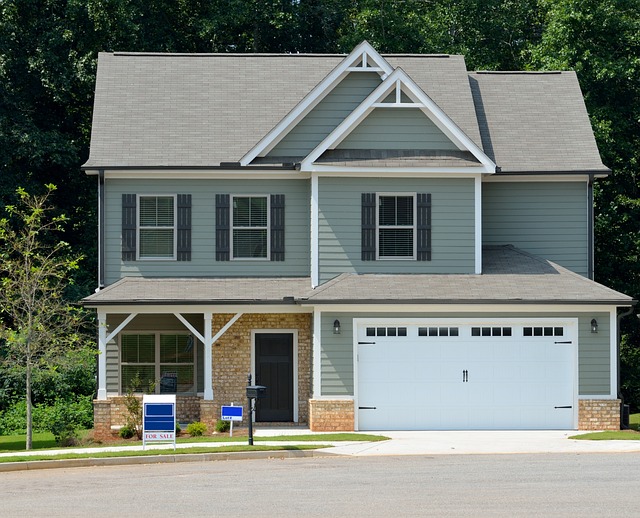
In Singapore’s property market, Executive Condominiums (ECs) serve as a unique housing option that caters to both upgraders and first-time homeowners. Unlike traditional public housing, ECs are initially sold at lower prices compared to private condominiums, making them an attractive choice for those seeking affordability without compromising on quality and amenities. The tiered eligibility criteria set by the Housing & Development Board (HDB) dictate who is eligible to purchase an EC. These criteria are based on income ceilings, housing type lived in during the past five years, and whether one has previously owned a flat. For instance, first-timer applicants, i.e., individuals who have not previously owned a flat, or have only ever owned a DBSS flat, are given priority when applying for an EC. As one moves up the income ladder, the eligibility narrows, ensuring that ECs remain accessible to those intending to upgrade from public housing.
The pricing of Executive Condominiums is influenced by these eligibility criteria, as well as market demand and the development’s location. As an EC matures and reaches the fifth anniversary from its date of completion or obtains outline planning permission for sub-sale, it undergoes a transition from the public housing to the private housing sector. This process, known as privatization, typically involves a change in pricing, reflecting the transition from being sold at subsidized rates to market prices. Prospective buyers should consider the potential price shifts associated with an EC’s maturity and its eventual privatization, as this will impact their long-term investment. The Executive Condominium Price thus fluctuates based on these factors, making it imperative for potential buyers to understand the nuances of eligibility and timing when considering an EC as a home or investment opportunity.
The Resale Market: A Comparative Analysis of New vs. Resale Executive Condominiums

In Singapore, the resale market for Executive Condominiums (ECs) presents a unique opportunity for potential homeowners to acquire property at potentially more favorable prices compared to brand-new units. Prospective buyers often engage in a comparative analysis of Executive Condominium prices between new and resale ECs to make informed decisions. New ECs typically come with the advantage of being brand-new, complete with a full 10-year Building and Construction Authority (BCA) warranty, modern finishes, and the latest design features. However, this newness comes at a premium price point, which may be higher than the resale market. On the other hand, resale ECs offer more competitive prices due to factors such as depreciation over time and market dynamics. These units provide an entry point into public housing for those who might not afford newer models. It’s important to consider that while new ECs may be pricier initially, they are eligible for the CPF Housing Grant, offering financial assistance that can offset the price difference. Conversely, resale ECs are not entitled to such grants but could offer more space and possibly better location or amenities, which may appeal to families. When evaluating Executive Condominium prices, it’s crucial to assess individual needs, budget constraints, and the long-term value proposition of each option, as both new and resale ECs have their unique benefits and potential for capital appreciation over time.
Financing Your Executive Condominium: Understanding the Loan Landscape and Costs
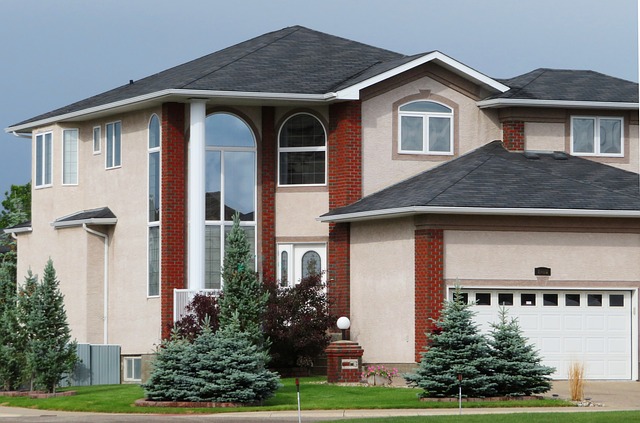
Navigating the purchase of an Executive Condominium (EC) in Singapore involves a nuanced understanding of the financing landscape. Prospective buyers should be well-versed with the pricing dynamics of EC units, as these properties offer a unique blend of private property benefits with public housing subsidies, making them an attractive option for both singles and families. The Cost Venture Index provides a valuable reference point for tracking the price trends of ECs, offering insights into market stability and growth potential. When considering financing options, it’s crucial to evaluate various loan packages from financial institutions, as they often come with different terms, interest rates, and eligibility criteria. Additionally, understanding the Total Debt Servicing Ratio (TDSR) and Mortgage Servicing Ratio (MSR) frameworks is essential to ensure that your monthly income can comfortably cover both your existing obligations and the new EC loan repayments. Prospective buyers must also consider the additional costs associated with EC ownership, such as maintenance fees, which are mandatory for maintaining the property’s status as an EC. By carefully assessing the loan landscape and anticipating all related costs, buyers can make informed decisions that align with their financial capabilities and long-term investment goals.
Future Trends and Projections for Executive Condominium Prices in Singapore

The trajectory of Executive Condominium (EC) prices in Singapore has been shaped by various factors, including government regulations, market demand, and economic conditions. Looking ahead, projections for EC prices are influenced by ongoing trends and policy adjustments. As the Housing & Development Board (HDB) eligibility criteria for ECs are reviewed periodically, changes here could affect price dynamics. For instance, adjustments to the income ceilings or the Minimum Occupation Period (MONP) before an EC can be sold on the open market could tilt supply and demand, consequently influencing prices.
Economic indicators such as GDP growth, interest rates, and the general economic outlook also play a crucial role in shaping future EC price trends. A robust economy typically leads to increased demand for housing, which can drive up property values. Conversely, economic downturns may lead to a slower pace of appreciation or even depreciation. Additionally, demographic shifts and the evolving preferences of Singaporean families will continue to influence the desirability and value of ECs. With a focus on sustainability and smart living features becoming more prominent, future EC developments are likely to cater to these trends, potentially enhancing their appeal and investment value over time. Keeping an eye on these factors provides valuable insights into the potential trajectory of Executive Condominium prices in Singapore.
Singapore’s real estate landscape is dynamic, with Executive Condominiums (ECs) playing a pivotal role in providing an alternative housing option for both families and investors. This article has delved into the multifaceted aspects of EC pricing, from their evolution to the current factors influencing their market value. Geographic proximity to amenities and transport nodes, as well as the tiered eligibility criteria that govern ownership, have been examined to understand how they shape the price points of these properties. Additionally, the resale market’s trends in comparison to new ECs offer valuable insights for potential buyers and investors. Prospective owners should also be cognizant of the financing options available and the associated costs. As we conclude, it’s clear that the Executive Condominium price in Singapore is a function of several interrelated factors, each playing a crucial role in determining market value. Prospective buyers are encouraged to consider these elements carefully when making their investment decisions, as real estate in this vibrant city-state continues to present both opportunities and challenges.

